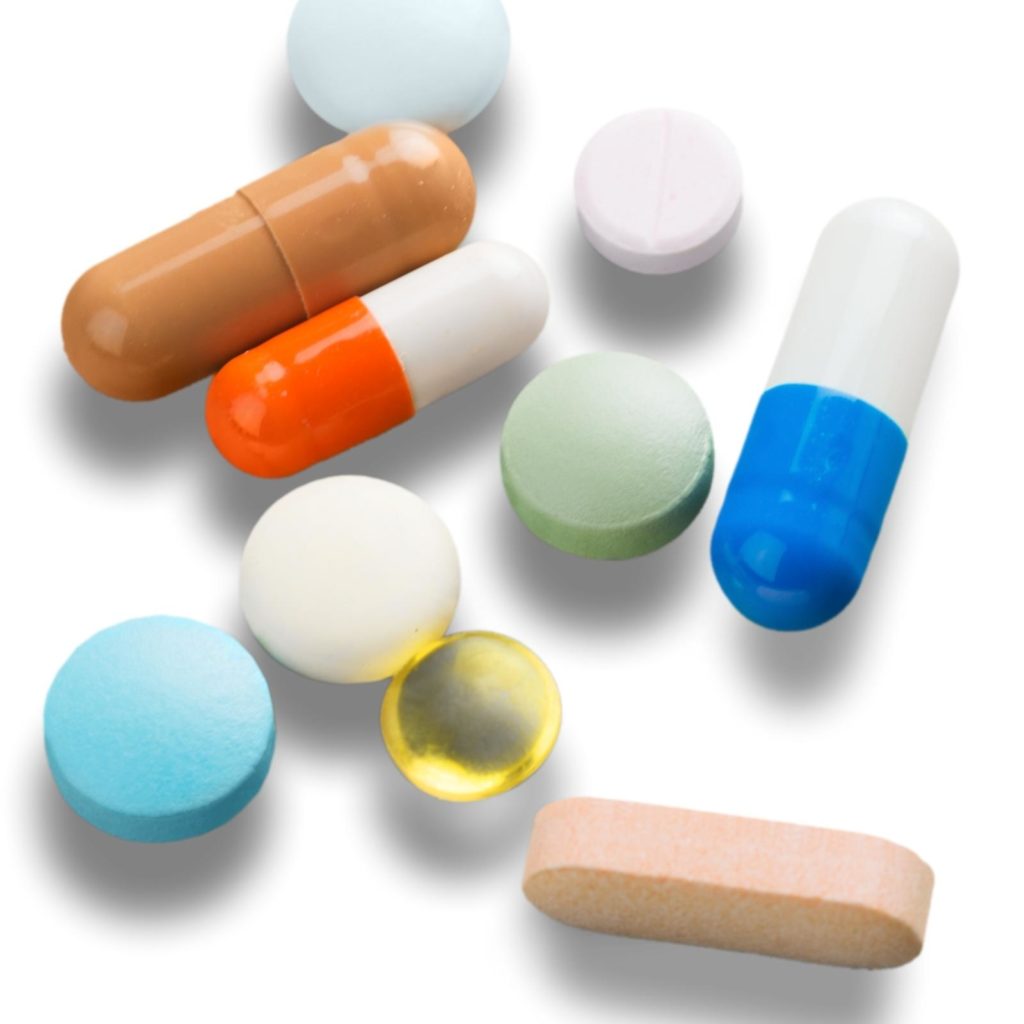What is MDMA?
MDMA, short for 3,4-methylenedioxymethamphetamine, is most commonly known as Ecstasy or Molly (short for molecule). It is a laboratory-made drug that produces a “high” similar to the stimulants called amphetamines. It also has psychedelic effects, similar to the hallucinogens mescaline and LSD. MDMA first became popular in nightclubs, at “raves” (all-night dance parties), and at music festivals or concerts. It is a popular party drug/rave energy pill used by a broader range of people. The drug’s effects generally last from 3 to 6 hours. It produces an energizing effect, distortions in time and perception, and enhanced enjoyment from sensory experiences. It has also been described as an entactogen—a drug that can increase self-awareness and empathy.
MDMA is a Schedule I controlled substance. DEA recognizes it as having no medical use and a high potential for misuse or addiction. As a result, it’s illegal to sell, buy, or use any form of MDMA. Street drugs like MDMA/ecstasy/molly often contain other substances or cutting agents that imitate the drug’s physical appearance. Molly cutting agents like bath salts and other powdery white substances make it easier for drug dealers to make more money with less product. Initially, Molly (MDMA) was usually abused in nightclubs, raves, and music festivals because users believed the high enhanced their experiences.

Most people who use MDMA take it in a pill, tablet, or capsule. The pills can be in different colors and sometimes have cartoon-like images. Some people take more than one pill at a time, called “bumping.” MDMA/Molly went pop when Miley Cyrus sang, in “We Can’t Stop,” “So la da da di / We like to party / dancing with Molly / Doing whatever we want.” It’s undeniable that music has the power to influence its listeners and arguably, all those drug and alcohol references serve as a major source of promotion for substance abuse.

Get Your Life Back
Find Hope & Recovery. Get Safe Comfortable Detox, Addiction Rehab & Dual Diagnosis High-Quality Care.
Hotline(844) 597-1011Effects of MDMA on the Body
Acute Effects
- A person may experience the intoxicating effects of MDMA within 45 minutes or so after taking a single dose. Those effects include an enhanced sense of well-being, increased extroversion, emotional warmth, empathy toward others, and a willingness to discuss emotionally-charged memories. In addition, people report enhanced sensory perception after MDMA experience.
- MDMA can also cause several acute adverse health effects. For example, while fatal overdoses on MDMA are rare, they can potentially be life-threatening—including high blood pressure (hypertension), faintness, panic attacks, and in severe cases, a loss of consciousness and seizures.

- Because of its stimulant properties and the situations in which it is often taken, MDMA is associated with vigorous physical activity for extended periods in warm environments. This can lead to one of the most significant, although rare, acute adverse effects—a marked rise in body temperature (hyperthermia).
- Treatment of hyperthermia requires prompt medical attention, as it can rapidly lead to muscle breakdown or an electrolyte (sodium) imbalance, which can, in turn, produce kidney failure or fatal swelling of the brain, especially in women.
- MDMA use in combination with vigorous exercise causes dehydration, leading some people to drink large amounts of liquids. However, this could increase the risk of electrolyte imbalance or brain swelling because MDMA causes the body to retain water.
- One modest dose of MDMA can also reduce the pumping efficiency of the heart in people who use it regularly, which is of particular concern during increased physical activity.
Effects of Regular MDMA Use
Sleep disturbances, lack of appetite, concentration difficulties, depression, heart disease, and impulsivity have been associated with the regular use of MDMA. In addition, decreased cognitive function is one of the after effects of taking molly for two years. Some of these disturbances may not be directly attributable after MDMA. Still, they may be related to some of the other drugs often used in combination with MDMA, such as cocaine, alcohol, marijuana, or to adulterants commonly found in MDMA tablets. More research is needed to understand the specific effects after MDMA use.
Get Help. Get Better. Get Your Life Back.
Searching for Accredited Drug and Alcohol Rehab Centers Near You?
Even if you have failed previously and relapsed, or are in the middle of a difficult crisis, we stand ready to support you. Our trusted behavioral health specialists will not give up on you. When you feel ready or just want someone to speak to about therapy alternatives to change your life call us. Even if we cannot assist you, we will lead you to wherever you can get support. There is no obligation. Call our hotline today.
(844) 597-1011Does MDMA Cause Weight Loss?
Unhealthy weight control behaviors are a common and increasing problem. on and increasing concern among females. Such behaviors include using laxatives, vomiting, fasting or skipping meals, diet pills, and overexercising to lose weight. Over time, unhealthy weight control behaviors can develop into clinical eating disorders such as bulimia nervosa or anorexia nervosa. In addition, the consequences of unhealthy weight control behaviors may include fatigue, dizziness, lack of energy, sore throat, abdominal pain, constipation, loss of dental enamel, pulmonary complications, cardiac problems, and pancreatitis.

Research has also shown that unhealthy weight control behaviors and substance use share common risk factors, such as impulsivity, childhood sexual abuse, parental substance use, or peer pressure, which could explain the link between the two problem behaviors. It is important to examine the relationship between unhealthy weight control behaviors and substance use in the general population because up to 50% of eating disorder cases are unrecognized in clinical settings such as primary care physician visits and are not referred to treatment.
Can MDMA cause weight loss? One study found a stronger effect of MDMA on serotonin neurons in women than in men. Serotonin imbalances have been linked to depression, anxiety, panic disorders, and impulse control disorders. In another study, women exhibited larger increases than men in Beck Depression Inventory (BDI) scores after MDMA use.
MDMA Weight Loss
Does MDMA cause weight loss? Using MDMA to lose weight is another common practice. Ecstasy was originally developed as a weight loss aid. Today, even though it is mainly used as a party drug, it is also used to lose weight, as one of the chief side effects is appetite suppression. Lack of appetite leads to neglected eating and near-immediate weight loss in users. But the accompanying side effects after MDMA are awful, and it must be noted that anyone is not recommended to use Ecstasy as a weight-loss drug or appetite suppressant. This dangerous practice can lead to addiction and numerous health and personal problems.
Can Drugs Cause Weight Loss?
Weight loss can sometimes be a sign of addiction. Some substances, including cocaine and other amphetamines, methamphetamine, and MDMA (ecstasy), cause weight loss by altering how the body processes food. The changes that occur in your body after taking these drugs can lead to a significant drop in your weight. Stimulants can also lead to weight loss by acting on the central nervous system and speeding up brain processes, which can lead to feelings of decreased hunger.
Long-Term Effects of MDMA
Continued use of MDMA will cause much damage to the body’s health.
Effects on the heart. Negative consequences on the user’s heart is one of the after effects of taking molly. These include hypertension, tachycardia, and the indirect effects on the heart caused by the suppression of appetite, thirst, and sleep.
Effects on the brain. Studies have shown that after MDMA, an individual may have brain damage, including a shrinking of the brain, and a decrease in the hippocampus volume. The hippocampus becomes swollen and atrophied. A dysfunctional and damaged hippocampus is connected to memory loss diseases like Alzheimer’s.
Effects on the liver and lungs. A small number of people after MDMA influences have been seen to have liver damage. Liver damage may be caused by a compromised immune system. It is still unknown whether liver toxicity is caused after MDMA or by the other compounds found in the tablets. Collapsed lung cases have also been one of the after effects of taking molly.
Effects on blood. After MDMA abuse, a person may have high blood pressure, faintness, panic attacks, and in extreme cases, seizures and unconsciousness. The appetite is suppressed after MDMA intake, which is harmful to diabetics.
Effects on sexual health. Women users may experience menstrual irregularity, reduced ovarian reserves, increased menstrual pain, and ovulatory dysfunction. MDMA use has a dramatic effect on the fertility of men. Male users often experience reduced libido, poor sperm count, and abnormally-shaped sperm.
Effects on the nose and mouth. Snorting MDMA will cause chemical burns in your mouth and nose. Excessive use creates holes in your nose (perforated septum). Your nose will become soft from the drug eating the cartilage. Another common effect of MDMA is nosebleed.
Mental health effects. More long-term effects of MDMA are psychological and emotional damage, such as strong extreme anxiety, emotional reactions, depression, and paranoia. You may also experience insomnia and sleep interruptions, disordered thinking, panic attacks, and delusions.
First-class Facilities & Amenities
World-class High-Quality Addiction & Mental Health Rehabilitation Treatment
Rehab Centers TourRenowned Addiction Centers. Serene Private Facilities. Inpatient rehab programs vary.
Addiction Helpline(844) 597-1011Proven recovery success experience, backed by a Team w/ History of:
15+
Years of Unified Experience
100s
5-Star Reviews Across Our Centers
10K
Recovery Success Stories Across Our Network
- Low Patient to Therapist Ratio
- Onsite Medical Detox Center
- Comprehensive Dual-Diagnosis Treatment
- Complimentary Family & Alumni Programs
- Coaching, Recovery & Personal Development Events
Should I Use MDMA to Lose Weight?
Does molly make you lose weight? The widely used ‘recreational’ drug ecstasy/MDMA/Molly appeals to users mainly because of its acute psychological effects, including euphoria, empathy, and energy. However, ecstasy also has other effects, including inducing a marked loss of appetite, which persists for a day or more after it is taken. The loss of appetite reported after MDMA/Ecstacy use fits with the notion that serotonin (5-HT) is essential in regulating eating. Stimulants of 5-HT reduce food intake, and regular dieting by healthy women alters central 5-HT function. Eating disorders like bulimia nervosa have been associated with 5-HT dysregulation.
Body dissatisfaction and weight concerns are widespread among young women in Western societies, which are also associated with the increased use of recreational drugs. Substance misuse is one of the risk factors for eating disorders. Impulsivity is a factor in bulimia and substance abuse, and recent research has highlighted impulsivity, especially in bulimia with comorbid substance abuse. MDMA causes an increase in heart rate, blood pressure, and body temperature. These stimulant effects, combined with prolonged physical activity, a hot environment, and other drugs, can result in unpredictable and serious physical complications.

World-class, Accredited, 5-Star Reviewed, Effective Addiction & Mental Health Programs. Complete Behavioral Health Inpatient Rehab, Detox plus Co-occuring Disorders Therapy.
CALL(844) 597-1011End the Addiction Pain. End the Emotional Rollercoaster. Get Your Life Back. Start Drug, Alcohol & Dual Diagnosis Mental Health Treatment Now. Get Free, No-obligation Guidance by Substance Abuse Specialists Who Understand Addiction & Mental Health Recovery & Know How to Help.
After Effects of Taking Molly
MDMA, or 3,4-methylenedioxymethamphetamine, begins to produce its effects about 20 minutes after it is taken, and the drug’s effects usually last for 3 to 4 hours. Users can feel euphoric, energetic, confident, and affectionate towards others when taking MDMA. People who take a lot or have a strong batch of MDMA may experience floating sensations and hallucinations. Aside from that, the medication can cause unwanted side effects, such as:
- large pupils
- clenching jaw
- grinding teeth
- heightened senses
- sweating
- nausea or vomiting
- muscles aches and pains
- higher blood pressure and heartbeat
- reduced appetite
- anxiety
- paranoia
- irrational behavior
After MDMA, users can feel depressed, irritable, and anxious. They may have trouble sleeping and concentrating. They might experience a ‘hangover effect’ after taking the drug, in which they experience reduced appetite, disturbed sleep, and aches throughout their body.
MDMA Addiction Signs
The development of a substance use disorder resulting from MDMA abuse would be labeled a hallucinogen use disorder under the current diagnostic scheme. However, some may refer to it as an ecstasy use disorder. According to the American Psychiatric Association (APA), the signs of a hallucinogen use disorder include:
- A routine of maladaptive use of MDMA that leads to significant distress in the person or significant problems with everyday functioning
- Frequent strong urges to use MDMA in various situations, such as stressful situations, situations where the user is happy, situations where the user is socializing, etc.
- Using tMDMA in situations where it is dangerous to do so
- Giving up important activities as a result of MDMA use
- Failing to fulfill essential obligations as a result of MDMA use
- The development of significant tolerance to MDMA
- Displaying issues controlling the use of MDMA that include the following:
- Even though the individual has formally stated they wish to cut down or stop their drug use, they cannot do so.
- The individual spends significant time trying to get the drug, using it, or recovering from it.
- The individual continues to use MDMA even though it results in significant issues with their relationships, jobs, school, and other important areas.
- Even though the individual recognizes that their drug use results in psychological or physical problems, they continue to use molly.
MDMA Risks of Overdose
High doses of MDMA can influence the body’s capacity to direct temperature. This can prompt a spike in internal heat levels that can occasionally bring about liver, kidney, heart failure, or even death. The drug’s utilization releases three chemicals in the brain: serotonin, norepinephrine, and dopamine. These are the brain’s neurotransmitters and impact sleep, mood, and appetite. Because MDMA affects the serotonin levels when the drug wears off, the user may feel depressed, agitated, and scared. MDMA overdose usually happens because of the mix of a wide range of drugs along with exhaustion
MDMA Addiction Treatment
If you have been using MDMA to lose weight, or if you or a loved one have been struggling with an Ecstasy addiction, professional treatment may be necessary in order to fully recover. From detoxification to individual therapy and relapse prevention, there are many benefits of visiting a professional center.
Medically-Assisted Detox
Medical detox is often considered the first stage of treatment. It will help you navigate the complicated process of withdrawal, but it doesn’t address patterns of thought and behavior that contribute to drug abuse. Various treatment approaches and settings can help provide the ongoing support necessary to maintain long-term sobriety after you complete detox.
Cravings are very common during detox and can be challenging to overcome. This often leads to relapse. Constant medical care provided during inpatient treatment helps prevent relapse. Clinicians can provide necessary medication and medical expertise to lessen cravings and the effects of withdrawals.
Psychotherapy for Depression and Anxiety
Several different modalities of psychotherapy have been used in the treatment of depression including:
- Cognitive Behavioral Therapy (CBT) – is an effective treatment that involves making changes in both the patterns of negative thoughts and the behavioral routines which are affecting the daily life of the depressed person for various forms of depression.
- Dialectical Behavior Therapy – is a comprehensive mental health and substance abuse treatment program whose ultimate goal is to aid patients in their efforts to build a life worth living. The main goal of DBT is to help a person develop what is referred to as a “clear mind.”
- Person-Centered Therapy – is a strategy that allows and encourages clients to understand and resolve their concerns in a safe, supportive environment.
- Solution Focused Therapy – is an approach interested in solutions that can be quickly implemented with a simple first step leading to further positive consequences.
Dual Diagnosis Treatment
Substance abuse and mental health disorders often co-occur. In many cases, traumatic experiences can result in a mental health disorder and substance abuse. Dual diagnosis rehabilitation treats both of these issues together. The best approach for the treatment of dual diagnosis is an integrated system. In this strategy, both the substance abuse problem and the mental disorder are treated simultaneously. Regardless of which diagnosis (mental health or substance abuse problem) came first, long-term recovery will depend largely on the treatment for both disorders done by the same team or provider.
Medication-Assisted Treatments
Medication-Assisted Treatments (MAT) for substance use disorders and mental health disorders are commonly used in conjunction with one another. This includes the use of medications and other medical procedures. During your rehab, the staff from your treatment facility will help you identify what caused your addiction and teach you skills that will help you change your behavior patterns and challenge the negative thoughts that led to your addiction. Sometimes, the pressures and problems in your life lead you to rely on substances to help you forget about them momentarily.
Individual and Group Counseling
Addiction and mental health counseling occur in both individual and group settings. One-on-one treatment sessions may address unresolved trauma, unconscious conflicts, and specific struggles, while group sessions often involve training in life skills, stress management, conflict resolution, and social connections. Group counseling also gives clients the chance to share their thoughts and experiences to develop social support, which is essential for lasting recovery. If you or someone you know is experiencing MDMA weight loss due to addiction, We Level Up has addiction specialists that are standing by to help.

Experience Transformative Recovery at We Level Up Treatment Centers.
See our authentic success stories. Get inspired. Get the help you deserve.
Start a New Life
Begin with a free call to an addiction & behavioral health treatment advisor. Learn more about our dual-diagnosis programs. The We Level Up Treatment Center Network delivers recovery programs that vary by each treatment facility. Call to learn more.
- Personalized Care
- Caring Accountable Staff
- World-class Amenities
- Licensed & Accredited
- Renowned w/ 100s 5-Star Reviews
We’ll Call You
Search More Florida Rehab & Related Information
Sources
[1] NIDA – https://nida.nih.gov/publications/drugfacts/mdma-ecstasymolly
[2] NIDA – https://teens.drugabuse.gov/drug-facts/mdma-ecstasy-or-molly
[3] NCBI – https://www.ncbi.nlm.nih.gov/pmc/articles/PMC4739726/
Health Direct: What are the effects of taking MDMA?
[4] Can You Snort Molly? – We Level Up NJ


